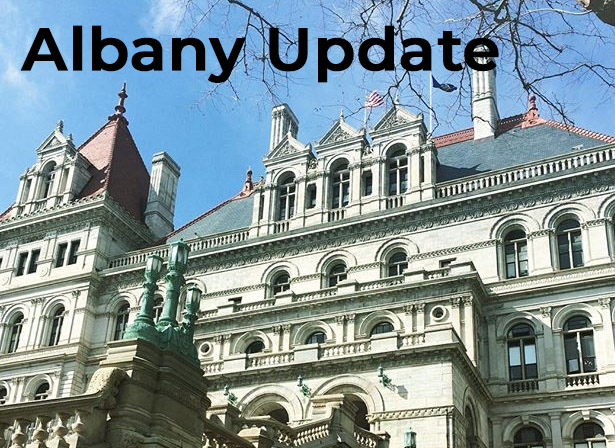
by Roger Downs, Conservation Director
New York has made incredible strides since Majority Leader Andrea Stewart-Cousins took over the reins of the Senate in 2018, helping the Democratically-controlled Assembly and Governor’s office pass decades of backlogged progressive reforms, which include the passage of a nation-leading climate law in 2019. Last year’s elections brought progressive supermajorities to both houses and expectations were high to pass even bolder environmental and climate protections. But with the close of the legislative session in June, it was clear that bold action has given way to complacency.
To be fair, there were a number of important reforms that passed the legislature that are headed to the governor’s desk: these include protecting New Yorkers from exposure to toxic chemicals by making water quality testing standards more rigorous, banning of harmful flame retardants, prohibiting the spreading of fracking waste on our roadways, and eliminating coal tar based sealants on our driveways. (You can urge the governor to sign these bills HERE.) But compared to the major policy issues left on the table by the Assembly, these seem like meager accomplishments, not what voters expect from a progressive supermajority.
By our count the Senate passed more than 30 important environment/energy/climate-oriented bills that the Assembly failed to take up. Conversely, we could only identify a single good environmental bill that the Assembly passed that was neglected by the Senate.
Because of Assembly inaction, proposals died on the vine that would have:
- protected more than a million acres of currently unregulated wetlands in New York,
- banned most applications of bee killing neonicotinoids,
- placed a moratorium on carbon-intensive cryptocurrency operations,
- established important energy efficiency standards,
- set the goal of protecting 30% of New York’s land mass for nature by 2030 and more.
In addition, the Senate passed a package of bills that would address a host of environmental injustices plaguing our inner cities and communities of color. Failing to take up these bills felt especially heartless.
The NYS Assembly used to be the environmental trendsetter in NY. It is difficult to explain how Speaker Heastie and the assembly’s Environmental Conservation Committee could have had such an anemic agenda this year and why they failed to act on so many now stranded issues. Clearly COVID-19 protocols, which largely made all legislative action remote, inhibited the kind of communication and advocacy that leads to bold action – where throngs of activists and lobbyists swarm the capitol and hold the legislature accountable and keep deliberation robust.
But these failures of leadership on the environmental front didn’t even cover the deeper and more urgent issues that we expected to be contentious and fiercely debated. The Climate and Community Investment Act – legislation that would establish a price on carbon and co-pollutants across every sector of NY society and use that revenue to fund equitable renewable energy transition – got a hearing, but made no movement in terms of negotiation or committee consideration. The Clean Futures Act – legislation that clarifies the intentions of NY’s climate law by specifically banning major new fossil fuel power plants – didn’t move either, despite the incomprehensible willingness of the State to consider applications for 3 new gas plant proposals that clearly violate our climate goals.
What is clear is that supermajorities tend to prioritize self preservation , and regardless of party, the urge to hang onto power is so much stronger than the will to do what is right. Our disappointment in the 2021 legislative session should drive our actions in the fall to ensure that the legislature fulfills its obligations to New York’s environment. With a new governor, and dire new warnings from the International Panel on Climate Change about inaction, we are organizing through the fall to ensure the 2022 legislative session does not repeat this year’s disappointments.